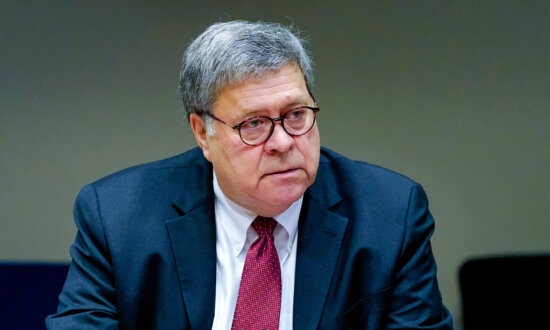Authored by Mike Shedlock via MishTalk.com,
The US and EU need to address the above question.
Philosophical Question of the Day
Credit Wolfgang Münchau at Eurointelligence for the question. I changed it slightly. He phrased it as EU, not US.
The Green MEP, Reinhard Bütigkofer, wrote yesterday that Ursula von der Leyen had personally intervened to stop the EU from upgrading its ties with Taiwan. We ourselves would like to know whether this decision was preceded by a phone call from Berlin, or whether the spirit of Angela Merkel is already roaming independently inside the Berlaymont building.
The acting German chancellor said yesterday that it would be damaging for Europe to decouple totally from China. So where do go from here?
[Mish Note: Münchau suddenly shifts the topic to Belarus and the question of an EU Army. What follows is a bit disjointed. I cut a couple of paragraphs but they mostly added to the confusion.]
The build-up of military capability that is currently being discussed in Brussels is not going to change anything, unless the EU agrees how and when to use it, and how to decide. Those conditions are not met. If you do not have a consensus in favour of qualified majority voting in foreign policy, you do not have a consensus to deploy armed forces. Ask yourself: If you had an EU rapid reaction force, would you have dispatched it to the Polish-Belarus border? To do exactly what? Fight refugees? Would you have taken military action against Alexander Lukashenko’s regime? Maybe bomb Minsk airport? We don’t think so.
A rapid reaction force is several steps ahead of what needs to be decided right now. Which is start where Merkel left, with the definition of what constitutes our strategic interest in respect of the two big powers on the Eurasian continent: China and Russia.
Legitimate commercial interests should be complements by security interests. But do we really want to engage in the China/Taiwan issue? Or should we accept that there are problems in the world the EU cannot, and perhaps should not, get involved in? It would be perfectly plausible for the EU to adopt a narrow foreign policy strategy, based on the defence of commercial, ecological and security interests. That’s already a lot. And if that is so, then surely, Merkel is right that it would be a mistake to decouple from China over Taiwan.
Rapid Reaction Force? Why?
Münchau asks the correct questions. But he left off an important point. Even if there was an EU rapid reaction force, every nation in the EU would have to agree to deploy it.
One of the fundamental problems in the EU is that it takes unanimous consent of 27 nations to do anything that is not explicitly spelled out. And a neither a rapid deployment force nor a European army is spelled out.
It took over a decade of bickering for every nation in the EU to finally agree to a trade deal with Canada.
US Needs to Address the Same Question
Failure to correctly answer that question led to the US losing two wars. The first was Vietnam, the second in Afghanistan.
Neither was our issue and ultimately US voters turned against each war.
But problems go far beyond absurd wars based on lies.
Trump placed sanctions on Russia and European companies over Gazprom. The result was that Gazprom was completed anyway, by Russia with help from Merkel.
If Germany wants to cut a deal with Russia over natural gas, that’s their call, not ours.
Gazprom, Taiwan, NATO
Gazprom was never our battle and we should have stayed out of it.
Apparently the EU and Germany are at odds over Taiwan. That means the US cannot count on the EU for coordinated support against China.
So why is it that US taxpayers should foot the bill for soldiers in Germany, Poland, and the EU in general?
Whose battle is it?
Trump threatened to cut funding for NATO. He also said he would pull all troops from Afghanistan.
He should have. But he was all talk and no show.
What About Iran?
The deal we had with Iran was the opposite. Trump unilaterally killed a deal that NATO our European allies, and our own Joint Chief of Staff all said was working.
The EU could have acted against Trump’s sanctions, but didn’t. The EU is totally dysfunctional.
Regardless, the key question remains for both.
We made a mess in the Ukraine by foolishly attempting to convert it into a NATO country.
The wars in Vietnam and Afghanistan speak for themselves. ISIS was a direct result of a foolish attack on Iraq.
None of this meddling ever did the US any good.
Correct Focus
Whether a problem is solvable or not is actually not the correct focus.
Let’s state the issue in correct terms.
The EU and the US both need to admit there are problems beyond their control in which meddling is likely to make matters worse.
For starters, the US cannot afford to be the world’s policeman and should not even try.
The answers are obvious but don’t expect anyone to listen.
* * *
Like these reports? If so, please Subscribe to MishTalk Email Alerts.












